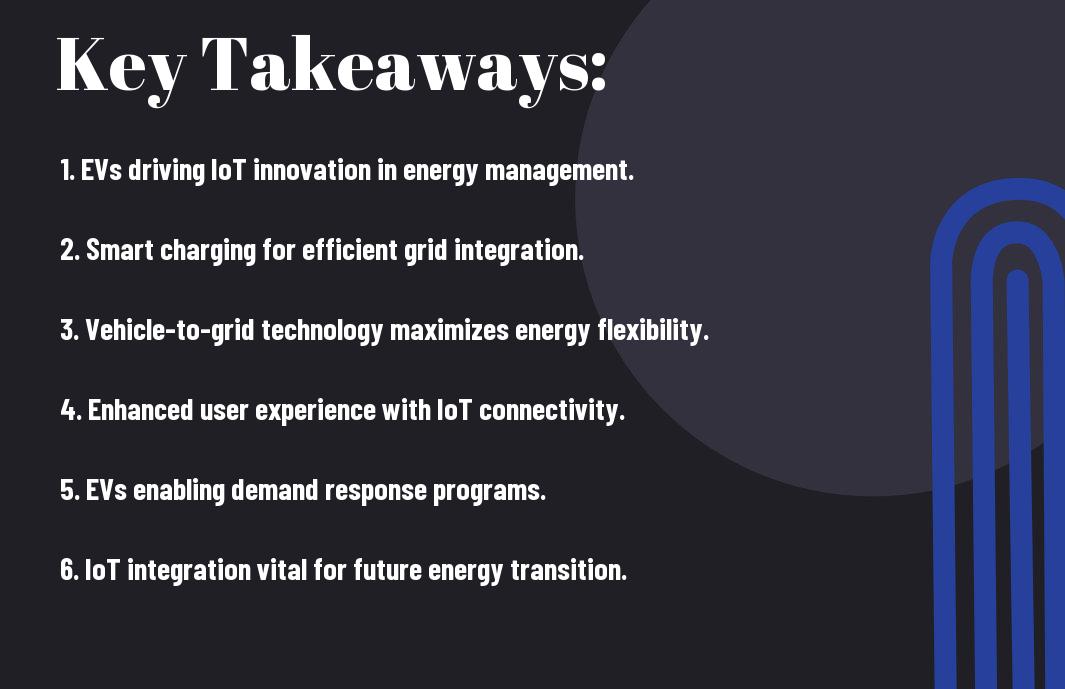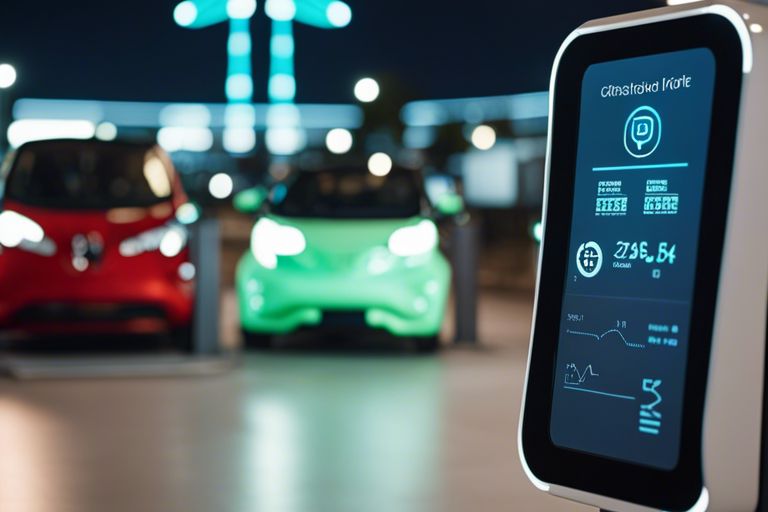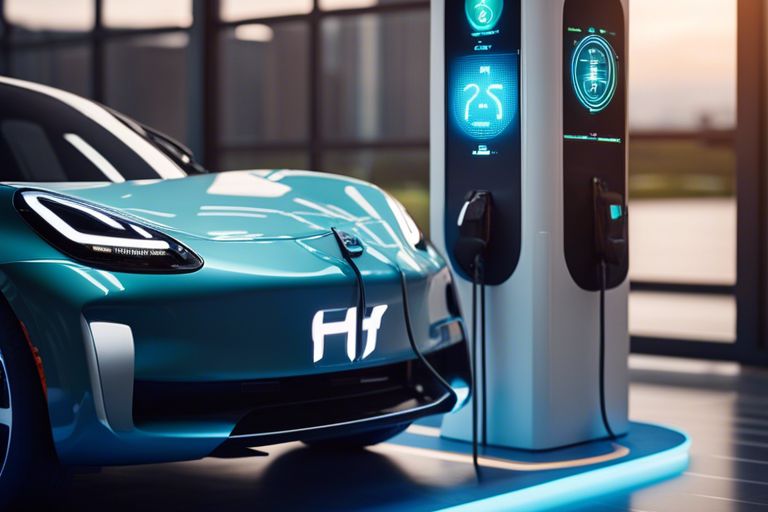IoT technology has permeated various facets of our lives, and one area where its impact is increasingly felt is in the energy sector, particularly through the rise of Electric Vehicles (EVs). As the world shifts towards more sustainable energy solutions, EVs are at the forefront of this revolution, not only in reducing emissions but also in their ability to connect to the grid and optimize energy usage. This blog post examines into the pivotal role that EVs play in the Internet of Things (IoT) landscape within the energy sector, exploring the challenges, benefits, and potential future implications of this interconnected relationship.

Technological Synergy
IoT in Energy Management
The synergy between Electric Vehicles (EVs) and the Internet of Things (IoT) is revolutionizing the energy sector. IoT plays a crucial role in energy management by providing real-time data on energy consumption, optimizing energy distribution, and enabling predictive maintenance of infrastructure. This seamless integration of IoT in energy management is enhancing efficiency and sustainability in the sector.
Electric Vehicles as IoT Nodes
The synergy between EVs and IoT is reshaping the energy landscape. EVs are emerging as IoT nodes, contributing not only to transportation but also to energy storage and grid stabilization. These smart vehicles can communicate with the grid, adjusting their charging patterns based on demand and supply fluctuations. This collaboration is paving the way for a smarter, more interconnected energy ecosystem.
Electric Vehicles are not just means of transportation anymore; they are becoming integral components of the energy network. By acting as IoT nodes, EVs can store excess energy when supply exceeds demand, providing a buffer during peak times. Moreover, they can feed stored energy back into the grid when needed, creating a bidirectional flow of energy that improves overall system resilience.

Implications for the Energy Sector
Enhancements in Energy Efficiency
For IoT for Electric Vehicle Monitoring and Management, the integration of electric vehicles into the energy sector has led to significant enhancements in energy efficiency. Smart charging solutions powered by IoT technology allow for optimal charging times based on grid demand and renewable energy availability. This not only reduces overall energy consumption but also promotes the use of clean, sustainable energy sources.
Grid Management and V2G Technologies
One of the most groundbreaking advancements in the energy sector is the implementation of Grid Management and Vehicle-to-Grid (V2G) technologies. As electric vehicles become more prevalent, they can serve as mobile energy storage units that can feed surplus energy back into the grid during peak demand periods. This bi-directional flow of energy helps balance the grid, reduce strain during high-demand times, and maximize the utilization of renewable energy sources.
Challenges and Considerations
Infrastructure and Interoperability
After the rapid growth of electric vehicles (EVs) in the energy sector, one of the key challenges that the industry faces is the development of an efficient infrastructure to support the increasing demand for charging stations. This requires a cohesive approach to design and implement a network that is not only widespread but also interoperable, allowing for seamless integration across different types of EVs and charging technologies.
Security and Data Privacy
To address the growing concerns over security and data privacy in EVs and IoT, stringent measures need to be put in place. This includes protecting sensitive data transmitted between vehicles, charging stations, and the grid from potential cyber threats and breaches. Ensuring end-to-end encryption and authentication protocols is crucial in safeguarding user information and preventing unauthorized access to personal data.
Privacy is a top priority when it comes to EVs and IoT devices. With the extensive data collection and sharing capabilities of these technologies, there is a legitimate fear of invasion of privacy. It is imperative for regulators and industry players to establish clear guidelines and protocols for data handling, storage, and usage to mitigate these risks and build trust among consumers.
The Road Ahead
Policy and Market Factors
Many advancements in the integration of Electric Vehicles (EVs) and the Internet of Things (IoT) are being driven by policy and market factors. Governments around the world are incentivizing the adoption of EVs through subsidies, tax breaks, and regulations that encourage cleaner transportation options. Additionally, the market is responding to consumer demand for sustainable solutions, leading to an increase in the development of smart charging infrastructure and energy management systems. Perceiving the potential for growth in this sector, companies are investing in research and development to stay competitive in the evolving market.
Future Innovations in IoT and EV Integration
Road For future innovations in IoT and EV integration, the focus will be on enhancing vehicle-to-grid (V2G) technology, enabling bi-directional energy flow between EVs and the grid. This technology has the potential to revolutionize the energy sector by allowing EVs to not only consume electricity but also store and sell it back to the grid during peak demand periods. For instance, this capability can help balance the grid, reduce energy costs, and increase the reliability of renewable energy sources.
What Role Do Electric Vehicles Play in IoT-Enabled Smart Grid Systems in the Energy Sector?
Electric vehicles are playing a crucial role in the iot revolutionizing smart grid systems in the energy sector. By integrating with smart grids, EVs can support balancing supply and demand, store excess energy, and provide backup power during peak times. This helps optimize energy usage and reduce strain on the grid.
To wrap up
Presently, electric vehicles are indeed leading the charge in the energy sector, showcasing the power of IoT integration. With Telco energy propositions from IoT to EV charging gaining momentum, it is evident that the convergence of technology and sustainability is paving the way for a more efficient and eco-friendly future. As we continue to witness advancements in electric vehicle technology and IoT solutions, it is crucial for industries to adapt and embrace these innovations for a more sustainable and interconnected world. To learn more about Telco energy propositions, visit Telco energy propositions from IoT to EV charging.
FAQ
Q: Why are electric vehicles important in the energy sector?
A: Electric vehicles play a crucial role in reducing carbon emissions and combating climate change in the energy sector.
Q: How do electric vehicles contribute to the Internet of Things (IoT) in the energy sector?
A: Electric vehicles are integrated with IoT technology to optimize charging, grid management, and energy efficiency, transforming the sector.
Q: What are the benefits of using electric vehicles in the energy sector?
A: Electric vehicles help reduce reliance on fossil fuels, promoting sustainability and enabling smart energy consumption through IoT integration.
Q: How does IoT enable smart charging infrastructure for electric vehicles in the energy sector?
A: IoT technology allows for dynamic management of charging stations, energy flow, and grid balancing, ensuring efficient operation and optimal performance.
Q: What does the future hold for electric vehicles leading the IoT charge in the energy sector?
A: The future is promising with advancements in AI, renewable energy integration, and smart grid solutions, positioning electric vehicles as key players in the energy transition.



